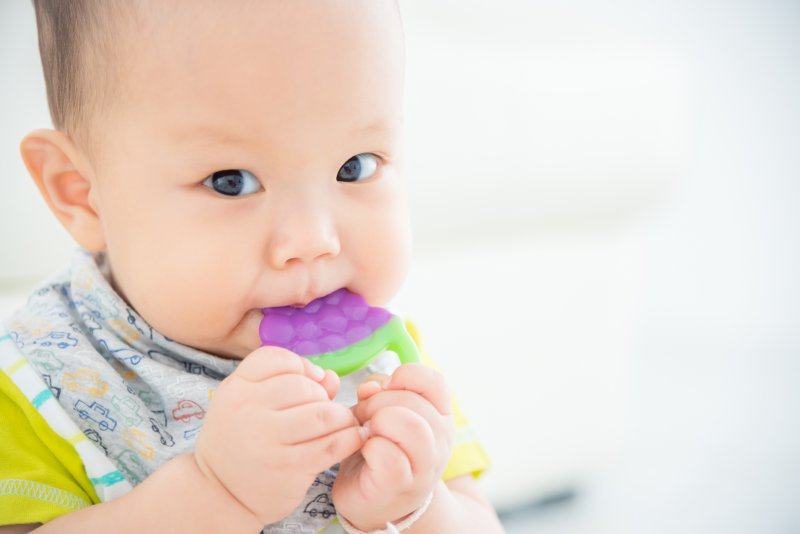
Teething is one of those significant milestones in your baby’s development that you may not be prepared for. As their tiny teeth begin to emerge, their behavior might shift, leaving you confused and frazzled. However, knowing the signs of teething can help you understand your baby’s problem and soothe them. Read on to learn the surest signs your baby is teething and how to help them cope.
Increased Drooling
One of the earliest signs of teething is increased drooling. As your baby’s gums start to change in preparation for the new teeth, their salivary glands kick into high gear. You might notice more drool on their chin and clothes (and don’t be surprised if you pick up a few wet toys.) Keeping a bib handy and gently wiping their face can help manage the excess drool and prevent skin irritation.
Chewing on Everything!
If your baby suddenly seems to want to chew on everything in sight, it’s a huge sign they’re teething. The pressure of chewing can help relieve the discomfort in their gums. You might see them gnawing on their fingers, toys, or anything they can get their hands on. Offering your baby soft, safe toys is a great way to provide them with some comfort and keep them occupied.
Increased Fussiness
Teething can be uncomfortable, and you might notice your baby becoming more irritable or fussy than usual. This crankiness is most likely because of the pressure and soreness in their gums as their new teeth push through. Extra cuddles and patience during this time can help keep them calm and distracted from their discomfort.
Decreased Appetite
The discomfort from teething can make eating less appealing. Imagine how little you’d eat if it hurt every time! So, if your baby is turning away from their source of sustenance more than usual, it might be a sign of sore gums. Offering cooler foods or teething toys before feeding can help soothe their gums and help them eat better.
Pulling Ears or Rubbing Cheeks
Your baby may also start pulling at their ears or rubbing their cheeks, which can be a sign of pain from teething. However, they could also have an ear infection, so it’s best to check for other symptoms like a fever to make sure. If you don’t know, it can’t hurt to take your little one to their pediatrician to find out.
Teething is a challenging time for both babies and parents, but knowing the signs can help you provide the comfort and care your baby needs. With a little extra attention and some soothing techniques, you can help your little one get through this milestone with a smile.
About the Practice
If you’re looking for a dentist’s office with caring and compassionate dental experts who like working with children, The Dental Specialists Pediatric Dentistry is the place to be. They use the latest dental technology and techniques to ensure a safe and comfortable experience every time. Call (972) 364-7472 to schedule an appointment or visit the website to learn more.
